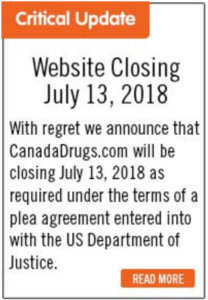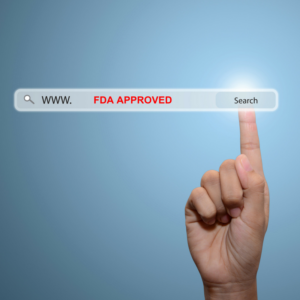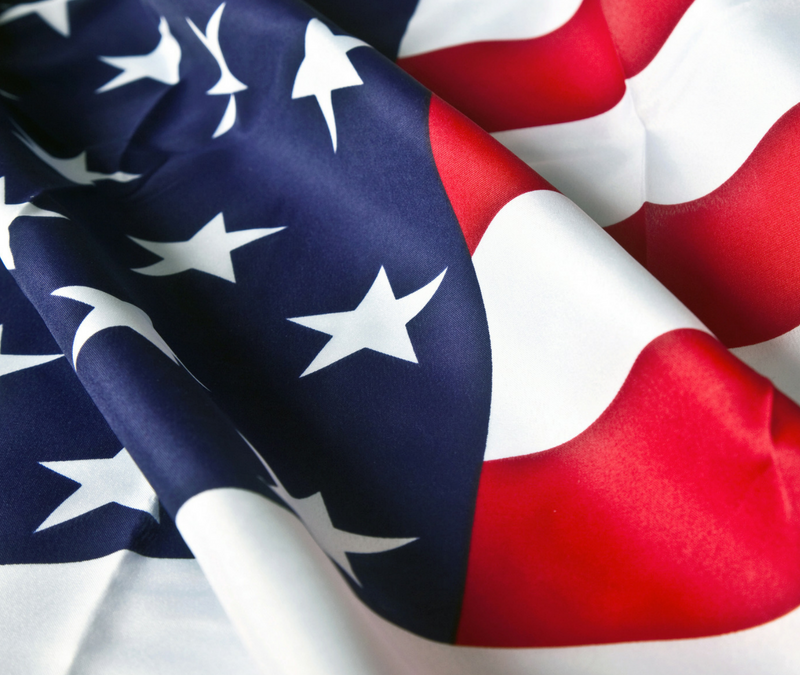by Gabriel Levitt, President, PharmacyChecker.com and Prescription Justice | Jul 17, 2018 | Online Pharmacies
From time to time, we participate in the public policy process by submitting public comments to government agencies requesting them. In May of this year, after introducing the Trump administration’s blue print plan for lowering drug prices, the Department of Health and Human Services (HHS) asked the public to comment on the Trump administration plan and/or make recommendations for lowering drug prices and out-of-pocket prescription costs.
I submitted comments that were laser-focused on PharmacyChecker’s area of greatest expertise, personal drug importation and online pharmacies. My comments clarify why and how properly-verified, international online pharmacies are a lifeline of safe and affordable medicines for Americans.
PharmacyChecker Public Comments to HHS July 13, 2018
The basic recommendations offered in the comments are below:
- Under Section 804 (j) of the Food, Drug and Cosmetic Act, the Secretary of Health and Human Services should expressly permit medicine imports for personal use to empower patients seeking affordable medication.
- Per the above, implement the Australian model of making personal drug importation legal with caveats to prohibit personal use imports of controlled drugs, especially prescription narcotics.
- The FDA should end its blanket warning against ordering medicines online, imported for personal use from pharmacies in Canada and other countries, and instead provide guidance on best practices for those who choose to import.
- The FDA should stop seizing personal imports of non-controlled medicines arriving from pharmacies that the FDA knows are licensed and require valid prescriptions.
- The FDA should take no enforcement actions against international online pharmacies that it has reason to believe are the safest international options available to Americans and instead focus on those that represent the gravest threats, particularly ones that sell prescription narcotics.
Tagged with: imports, politics, public comments
by Gabriel Levitt, President, PharmacyChecker.com and Prescription Justice | Jul 13, 2018 | FDA enforcement
 [UPDATE: Today (July 13th, 2018), CandaDrugs.com, and other sites it owns, such as JanDrugs.com, have stopped selling medicines to patients in the U.S. in accordance with an agreement with the U.S. Attorney in Montana. Below, please read to understand why this happened. Several stories in the media are reporting that the reason is that patients bought counterfeit drugs from the online pharmacy, which is not true.
[UPDATE: Today (July 13th, 2018), CandaDrugs.com, and other sites it owns, such as JanDrugs.com, have stopped selling medicines to patients in the U.S. in accordance with an agreement with the U.S. Attorney in Montana. Below, please read to understand why this happened. Several stories in the media are reporting that the reason is that patients bought counterfeit drugs from the online pharmacy, which is not true.
Bottom line, as I see it: a very well-run, safe, international online pharmacy was forced by the U.S. government to stop helping Americans afford prescription drugs because the pharmaceutical industry wanted that outcome.
It’s a shame and American patients struggling with prescription costs are worse off for it.]
[FIRST PUBLISHED APRIL 13, 2018]
In a plea bargain signed today with the U.S. Department of Justice, the owners of CanadaDrugs.com are forfeiting their website www.CanadaDrugs.com and other websites they operate to the U.S. government. This is an unfortunate outcome of a case that did not involve medication sales of the popular website CanadaDrugs.com, which has been safely selling medication at low cost to Americans for many years. The case involved a separate wholesale business conducted by the owners of the website. Sadly, two counterfeit batches of the cancer medication, Avastin, entered the supply chain of that wholesale business in 2011 and were sold to medical offices in the U.S. To be clear, Avastin was never sold on the CanadaDrugs.com website.
For some balance and context: in the past, CVS and CVS.com were found to be selling counterfeit Lipitor, yet this did not lead to CVS having to forfeit its website to the U.S. government.
CanadaDrugs.com had been a verified member of the PharmacyChecker Verification Program since 2005. During that time, it likely processed millions of prescriptions and filled them from licensed pharmacies in Australia, Canada, New Zealand and the United Kingdom. We have verified the licenses of these pharmacies. CanadaDrugs.com voluntarily withdrew from our program in March, aware of the pending deal with the U.S. government. The FDA recognizes that there is no urgency to shutting down CanadaDrugs.com, giving them 90 days to wind down their international retail pharmacy business. In fact, CanadaDrugs.com remains a licensed pharmacy in Manitoba, Canada.
It was necessary for the FDA to investigate and act to prevent medication from being illegally sold at a wholesale level into the U.S. The enforcement discretion used by the FDA for personal importation never extended to those who illegally import and resell medication. We at PharmacyChecker have never condoned such sales. However, the deal struck is likely to do more harm than good by shuttering a good online pharmacy that was operating safely. Making matters worse, this case has been and continues to be used by the pharmaceutical industry to fuel a campaign carried out by its front groups to scare Americans and stop them from buying lower cost, safe and effective medications from pharmacies in other countries.
Interestingly, just as the indictment in this case was slated for release in February of 2015, I sent a report to the members of congress most responsible for regulating the FDA called: “Online Pharmacies, Personal Drug Importation, and Public Health: Ill-Considered Enforcement Prevents Access to Safe and Affordable Medication.” Basically, it was my attempt to explain, with rigorous analysis and research, why shutting down the safest international online pharmacies is bad for public health. It was bad policy then and it remains so now with tens of millions of Americans not filling prescriptions each year because of cost.
Tagged with: avastin, canadadrugs, Enforcement
by Gabriel Levitt, President, PharmacyChecker.com and Prescription Justice | Jul 6, 2018 | FDA enforcement
 Last week, I published an article about new cooperation between Internet companies and the FDA undertaken to supposedly stamp out illegal opioid sales on the Internet, yet slides consciously into stopping imports of safe, lower-cost medicines. The article talked about the FDA’s Online Opioid Summit, which was held last Wednesday.
Last week, I published an article about new cooperation between Internet companies and the FDA undertaken to supposedly stamp out illegal opioid sales on the Internet, yet slides consciously into stopping imports of safe, lower-cost medicines. The article talked about the FDA’s Online Opioid Summit, which was held last Wednesday.
That summit was covered effectively (as much as possible) in this article from Tarbell to uncover further proof that the agency is, in fact, targeting online sales of regular, lower-cost medicines, which are imported for personal use. Reporter Michael McAuliff noted that the so-called public summit was mostly closed-door and very secretive. Reporters were not invited. Pharma, however, was well represented.
Apparently, it was the Internet companies who wanted privacy, perhaps to conceal efforts at stopping opioid sales on their platforms to not tip off the drug dealers. It could also be that they are ashamed of bowing to demands to censor content that Big Pharma/the FDA finds objectionable. Time will tell.
To his credit, Mr. McAuliff asks how big of a contributor to illegal opioid sales the Internet actually is. According to a division of the Centers for Disease Control and Prevention, only one tenth of one percent (0.1%) of illegally obtained prescription narcotics (opioids) are purchased online.
According to staff at the Internet Association, a trade group that represents about 40 large Internet firms, including Microsoft, Google, Amazon, Facebook, and Go Daddy, 3.4% of people abusing opioids obtain them from online sources. I have yet to find the survey, but will try to do so and write about it soon.
So how do we know that actions taken by the FDA to curtail illegal opioid sales online are being used against safe personal drug importation as well? The best example is the increased numbers of prescription orders being seized by the FDA using funding by Congress that was appropriated for stopping illegal opioid imports, particularly the drug Fentanyl and its analogs. As Tarbell finds, most such seizures are not opioids but regular prescription medicines.
The Tarbell article quotes FDA Commissioner Scott Gottlieb owning up to this:
“We’ll use [the increased funding from Congress] to interdict more illegal products flowing across our borders, including products ordered online, as well as shifting more of our criminal investigative resources to target these online sales. This is a conscious policy decision by the FDA, and we believe these online sales represent one of the highest areas of risk facing Americans right now.”
Tens of thousands of deaths occur each year from opioid overdose. A small fraction of those drugs were purchased online and those sales must be stopped! However, the tragedy of opioid abuse should not be used like this to stop people from getting more affordable medicines from Canada and other countries.
Tagged with: Enforcement, opioids
by Gabriel Levitt, President, PharmacyChecker.com and Prescription Justice | Jun 26, 2018 | Internet Censorship
 This past month, Congress passed a flurry of bills dedicated to stopping the devastation of the opioid crisis. One focus is on stopping illegal opioid imports from coming in though the U.S. mail. The Synthetics Trafficking and Overdose Prevention Act, which passed in the House, is one such bill. But as I wrote in the The Hill last year, the STOP Act could also enable the FDA to more easily prevent Americans from importing lower-cost, safe and effective medicines from Canada and other countries.
This past month, Congress passed a flurry of bills dedicated to stopping the devastation of the opioid crisis. One focus is on stopping illegal opioid imports from coming in though the U.S. mail. The Synthetics Trafficking and Overdose Prevention Act, which passed in the House, is one such bill. But as I wrote in the The Hill last year, the STOP Act could also enable the FDA to more easily prevent Americans from importing lower-cost, safe and effective medicines from Canada and other countries.
The FDA is also fighting the opioid crisis by scrutinizing the Internet as a channel of illegal sales. That, too, could lead to the curtailment of access to lower-cost, imported medicines from pharmacies, ones which don’t sell opioids or controlled drugs at all, but do help people afford medicines.
Ideally, people who use a search engine, such as Google, find information based on an objective search algorithm. With tens of millions of Americans not filling prescriptions due to high prices here at home, many are Googling to find and order cheaper medication from international online pharmacies. (more…)
Tagged with: Enforcement, Google, U.S. Food and Drug Administration, Volokh Conspiracy
by Gabriel Levitt, President, PharmacyChecker.com and Prescription Justice | Jun 18, 2018 | Drug Safety
 I write this post about insulin with ambivalence and frustration, but also hope. The diabetes patient and activist community is rightfully seething, screaming at the top of their lungs about high insulin costs in America. One young man stands out in my mind. He recently died because he could not afford his insulin, and now his mother bravely speaks out about her son’s death—an example of why drug prices are a national crisis.
I write this post about insulin with ambivalence and frustration, but also hope. The diabetes patient and activist community is rightfully seething, screaming at the top of their lungs about high insulin costs in America. One young man stands out in my mind. He recently died because he could not afford his insulin, and now his mother bravely speaks out about her son’s death—an example of why drug prices are a national crisis.
In a March article in Insulin Nation, the journalist/editor Audrey Farley and I discussed the issue of buying more affordable insulin online from pharmacies located in Canada and the U.K. She found that many of her readers were doing so and wanted to let them know how to go about it safely.
One carton of Lantus Solostar (5 pens of 3ml each), a long-acting insulin made by Sanofi Aventis in Germany, goes for about $430 at a CVS in Brooklyn, New York. At Rexall Drugs in Toronto, the price is $84.99. That’s 80% less. Until recently, a small number of Canadian pharmacies in our Verification Program sold it for about $180. The online Canadian price is higher because of the fees associated with special packaging and shipping – but it’s still 56% less than the U.S. price. For those prices, Americans living with diabetes could save a couple of thousand dollars a year; and those who can’t afford it here at all could stay alive.
Insulin is a temperature-sensitive medication and, because of that, requires significant precautions when shipping. To prevent it from degrading requires special packaging. Effective patient communication is also necessary. Because of our recent updates to our refrigerated medications policy, one that places stricter requirements on pharmacies in the PharmacyChecker Verification Program, most will likely choose not to sell insulin to Americans— at least not for a while. Here’s why… (more…)
Tagged with: #insulin4all, FedEx, Insulin, PharmacyChecker Verification Program
by Gabriel Levitt, President, PharmacyChecker.com and Prescription Justice | Jun 13, 2018 | FDA enforcement

For years, the pharmaceutical industry and the FDA have used the global problem of counterfeit drugs to lobby against importation of lower-cost prescription medicines. They have used the online sale of controlled drugs without a prescription as a pretext to curtail online access to licensed pharmacies in Canada. And now they’re using the opioid addiction and overdose crisis as well. So, when I learned that there will be a meeting hosted by the FDA, a “Summit” to address the problem, my radar went up. What is this really about, and who has a seat at the table?
The event is called “FDA Online Opioid Summit: Reducing Availability of Illicit Opioids Online.” I have no doubt that the participants genuinely want to stop illegal opioid sales on social media sites and rogue pharmacy sites, but Panel #1 is essentially the usual pharma suspects from the Alliance for Safe Online Pharmacies, who spent about half a million bucks lobbying Congress to stop prescription importation legislation that doesn’t even allow imports of controlled substances at all. Since 2009, that group has been pushed by Eli Lilly on the Obama administration to shut down safe international pharmacies under the guise of going after rogue sites and counterfeiters. (more…)
Tagged with: Alliance for Safe Online Pharmacies, Enforcement, opioids




 Last week, I published an article about
Last week, I published an article about  This past month,
This past month,  I write this post about insulin with ambivalence and frustration, but also hope. The diabetes patient and activist community is rightfully seething, screaming at the top of their lungs about high insulin costs in America. One young man stands out in my mind. He recently died because he could not afford his insulin, and now his mother
I write this post about insulin with ambivalence and frustration, but also hope. The diabetes patient and activist community is rightfully seething, screaming at the top of their lungs about high insulin costs in America. One young man stands out in my mind. He recently died because he could not afford his insulin, and now his mother 
